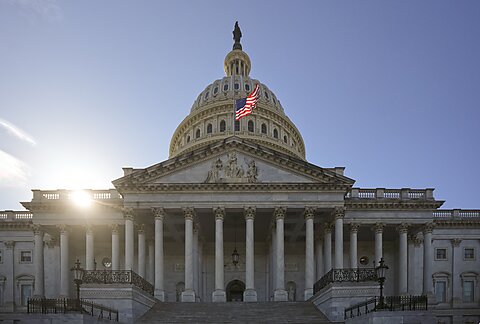Following the passage of the One Big Beautiful Bill Act, Republicans’ mammoth $4 trillion tax and spending law, Congress is now slowly turning to address the next series of budget debates, including annual appropriations for FY2026 and the expiration of pandemic-era enhanced Obamacare subsidies. As Romina Boccia and I outlined in our fiscal agenda paper earlier this year, Congress should use these debates as an opportunity to pursue genuine spending restraint, reining in discretionary spending and allowing wasteful, fraud-ridden health care subsidies to expire.
To CR, or Not To CR
Every year, Congress is supposed to finalize the appropriations process before September 30, the end of the fiscal year. Typically, Congress fails to do so, reflecting a breakdown in basic governing responsibilities. In today’s political environment, it seems likely that trend will hold, with Congress pursuing a continuing resolution (CR)—a continuation of past spending levels—to prevent a government shutdown.
To be clear, a CR that holds discretionary spending constant is still preferable to the routine increases in discretionary spending that we tend to see in Washington. However, holding the rudder steady is a woefully insufficient remedy to a budget that contains $7 trillion in annual spending.
To add insult to injury, a “true” CR is not likely (or even possible) in this current fiscal environment. The One Big Beautiful Bill added $350 billion in defense and immigration funding through the reconciliation process. These issues are normally funded via annual appropriations, so holding discretionary spending constant would still result in a significant increase after factoring in this novel spending plus-up. On top of that, recent CRs tend to have riders and special carveouts that boost spending far beyond prior-year levels.
Return to Pre-Pandemic Spending and Cap Growth
Instead of a CR, Congress should slash spending back to pre-pandemic levels. That would rein in the explosion in government size that occurred during the pandemic and modestly improve our worsening fiscal trajectory.
Even in the absence of a return to pre-pandemic spending levels, Congress could still improve the fiscal situation by embracing robust fiscal guardrails. The Fiscal Responsibility Act of 2023 (FRA) established bipartisan spending caps designed to constrain the growth of discretionary spending. The binding components of this law expired in FY2025, but the law still established non-binding targets for FY2026 and beyond. As part of a return to more responsible budgeting, Congress could give these provisions teeth and reestablish binding spending caps.
Additionally, it is crucial that Congress close the loopholes that appropriators typically use to boost spending beyond “base” levels. The use of emergency spending to bypass spending caps, for example, completely erased any theoretical savings brought about by the FRA. As part of the coming budget debate over appropriations, legislators should be wary of phony emergency designations and fully offset this kind of gimmicky spending with cuts elsewhere in the budget.
Earmarks
In recent weeks, a disappointing coalition of Republicans has been pushing for earmarks, now rebranded as community project funding. This type of spending bypasses the normal competitive grant process in favor of subsidizing local parochial projects driven by lobbyists and special interest groups. The projects funded by earmarks, from baseball stadium renovations to electric bus funding, are issues squarely the responsibility of state and local groups. Federal lawmakers have no business funneling taxpayer money to classic pork barrel projects.
In FY2025, taxpayers scored a major win with Republicans cutting earmarks entirely out of the budget. Should earmarks make a return in FY2026, it will be an unfortunate embrace of big government waste—something that seems increasingly fashionable in the Republican Party.
Obamacare Subsidies
Over the pandemic, Congress enacted a temporary increase in health care subsidies, expanding eligibility and increasing the size of the federal subsidy for health insurance purchased through Obamacare. After being extended once in 2022, this temporary increase is now slated to expire at the end of this year. Congress should allow these costly and wasteful health care subsidies to expire.
First, the expanded Obamacare subsidies are costly. Should Congress make this temporary boost permanent, it would add $335 billion to federal deficits over the next 10 years. That’s on top of the already planned trillions in new federal health care spending already baked into the baseline. The solution here is less government intervention, not more, when it comes to reducing prices and improving quality.
Second, the expanded Obamacare subsidies are poorly targeted and ripe with fraud. Roughly one-third of this pandemic excess spending goes to individuals with incomes 400 percent above the federal poverty level. Moreover, the expanded Obamacare subsidies have contributed to rampant fraud, estimated at $20 billion per year. Legislators should not be giving taxpayer-funded handouts to insurance companies and well-off Americans.
Conclusion
The coming debates will demonstrate how serious Congress is about pursuing fiscal responsibility in the post-OBBBA landscape. Reining in the growth of discretionary spending and allowing pandemic health care subsidies to expire would be modest steps in the right direction towards restoring some modicum of fiscal responsibility. With debt at record levels and interest costs rising, the stakes are simply too high to kick the can down the road yet again.















